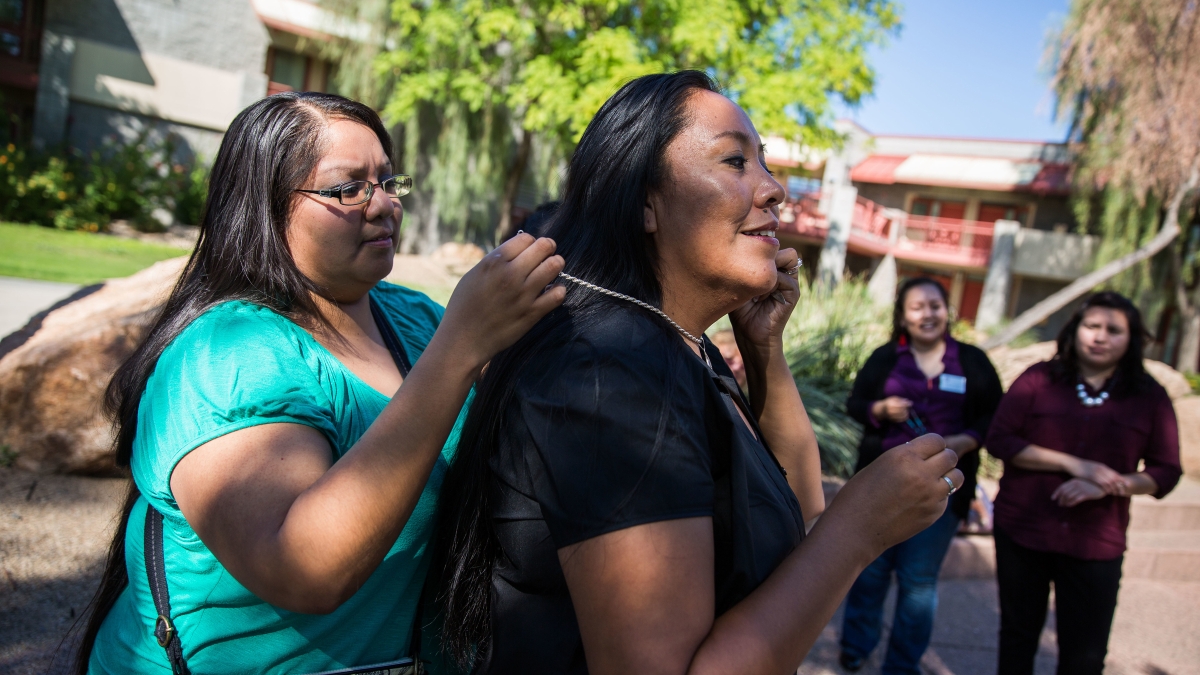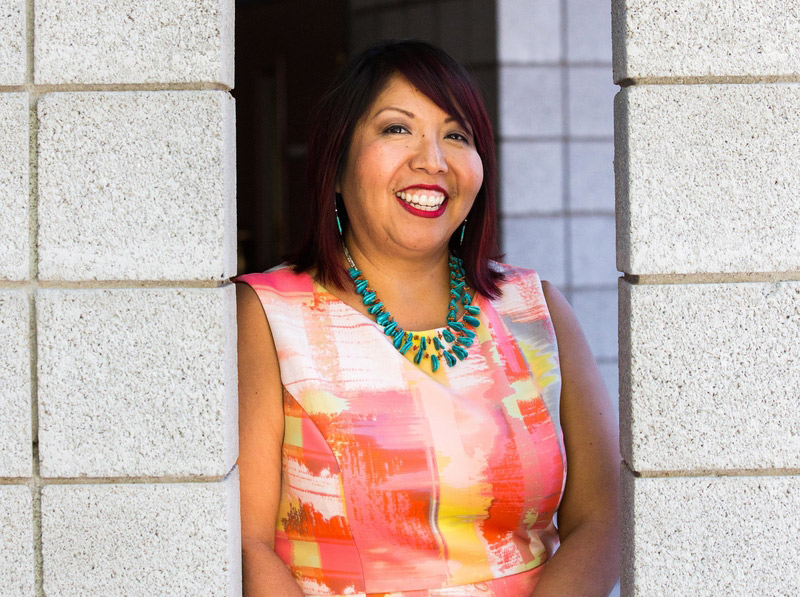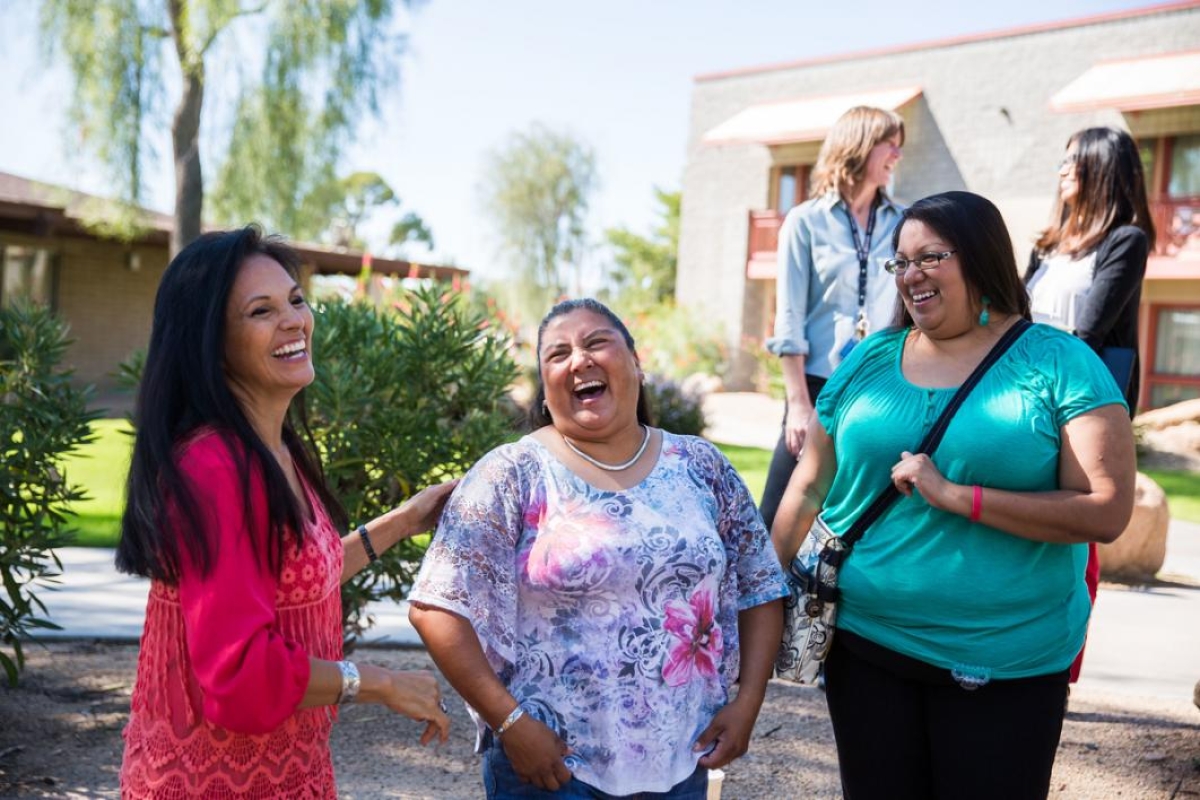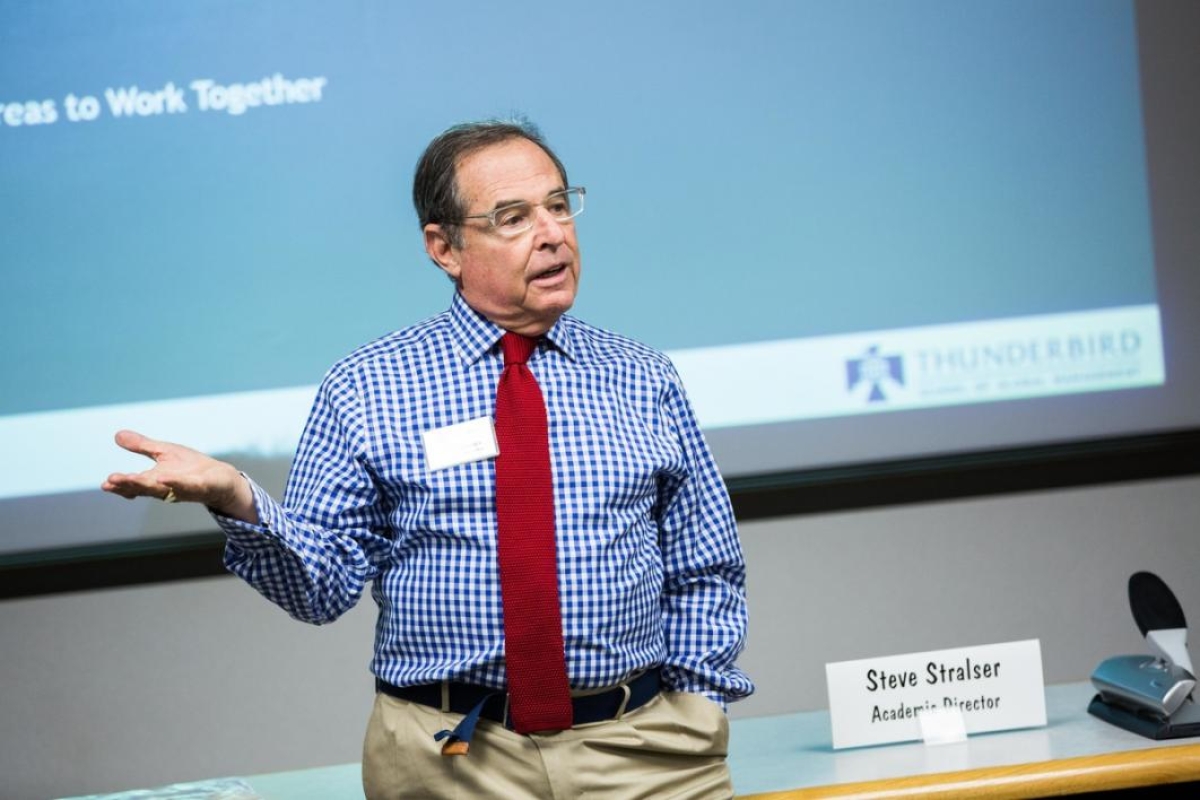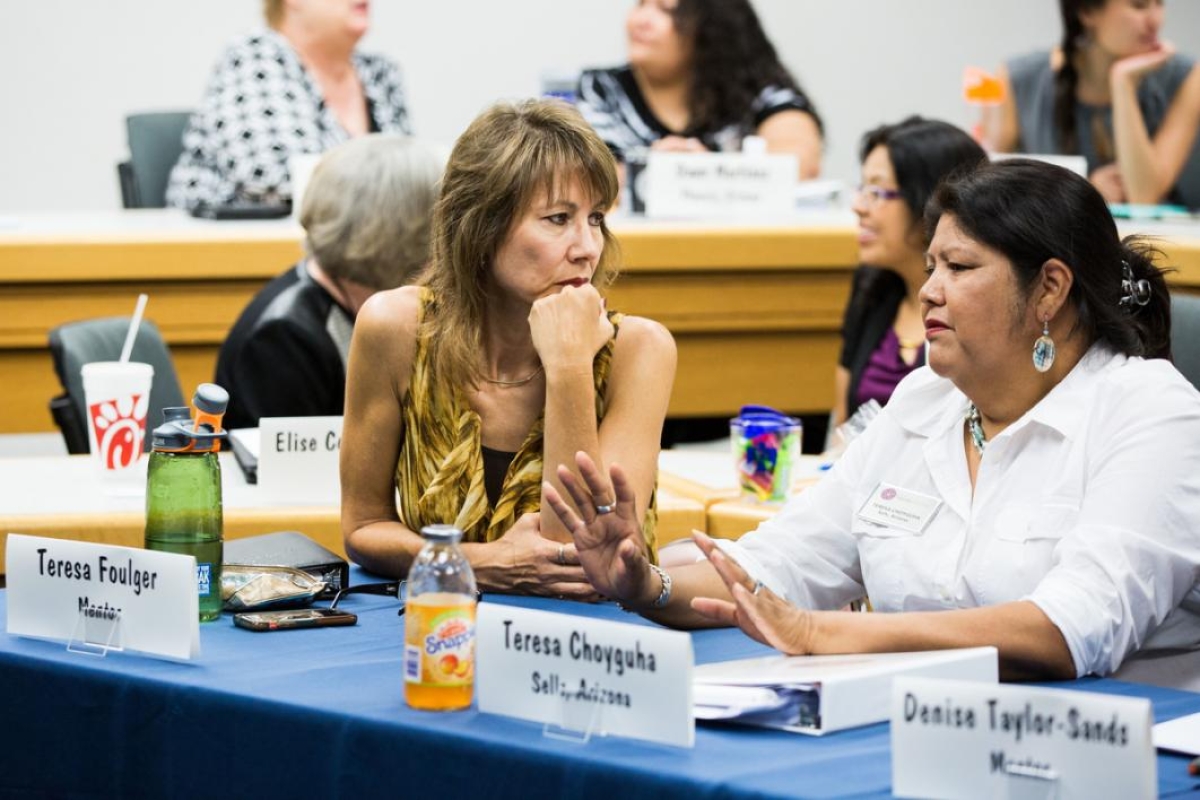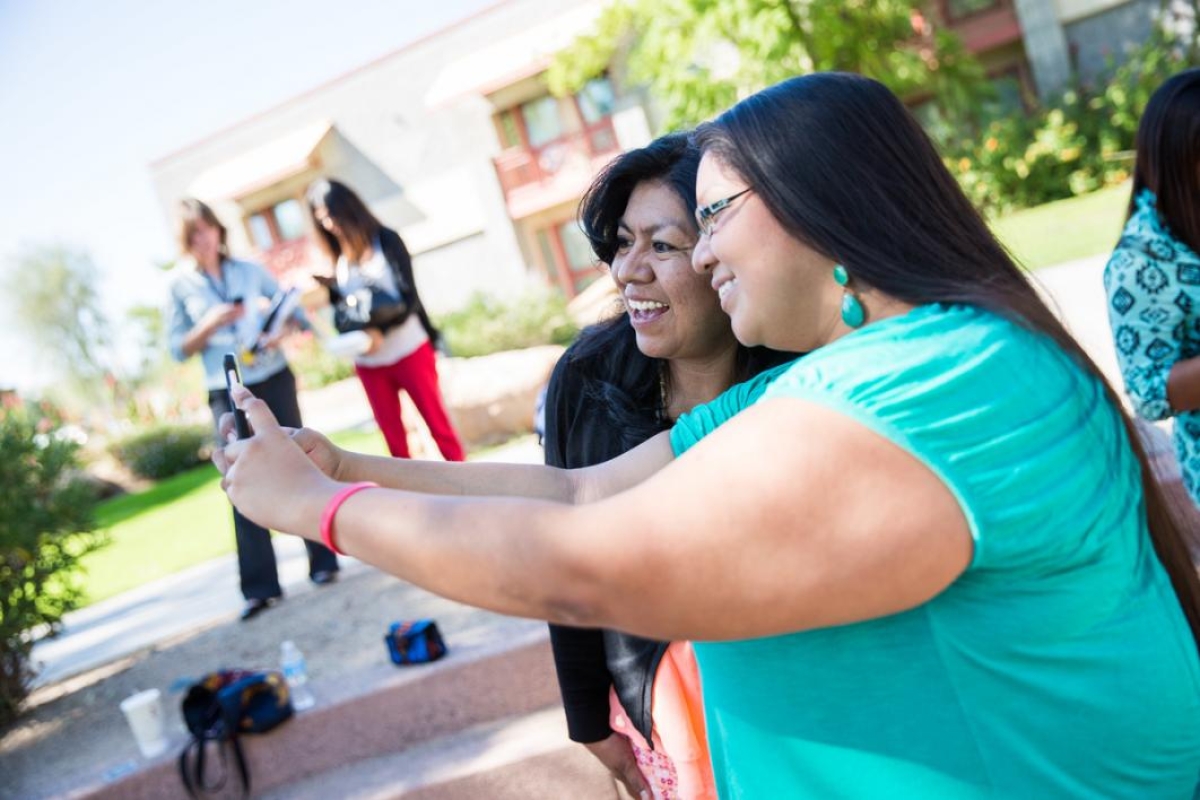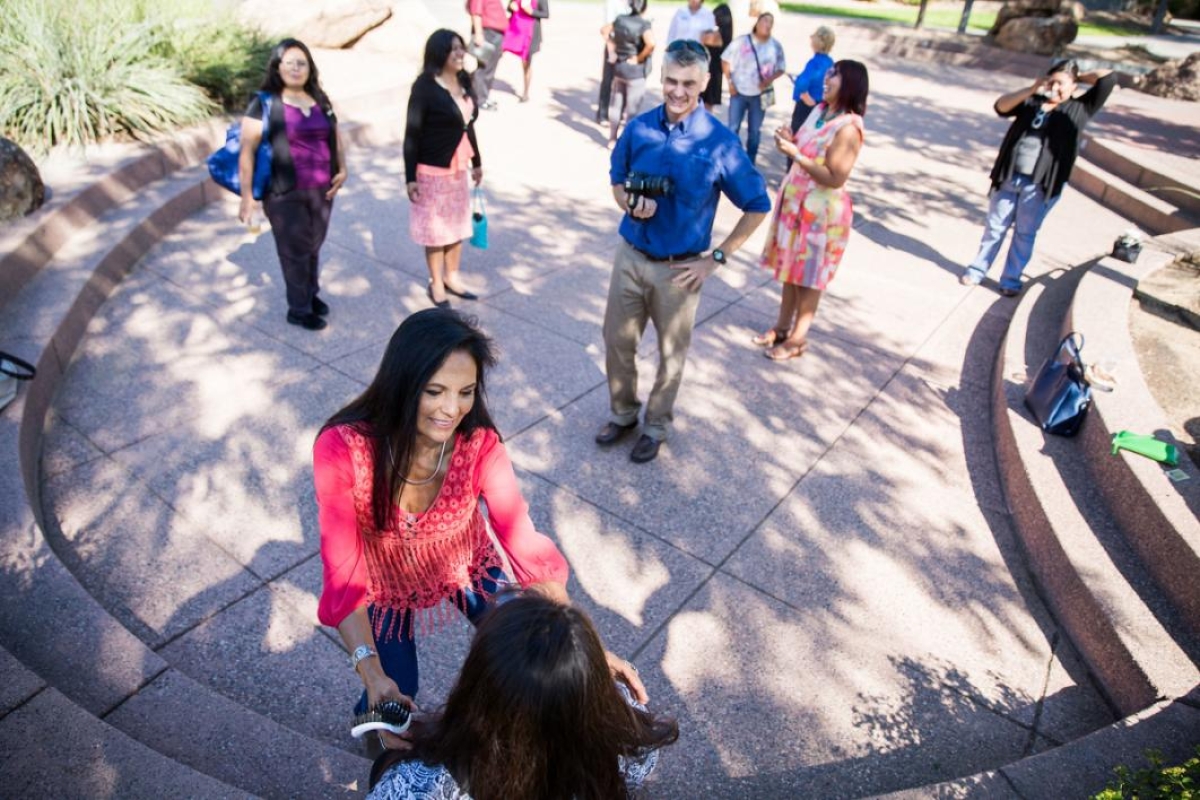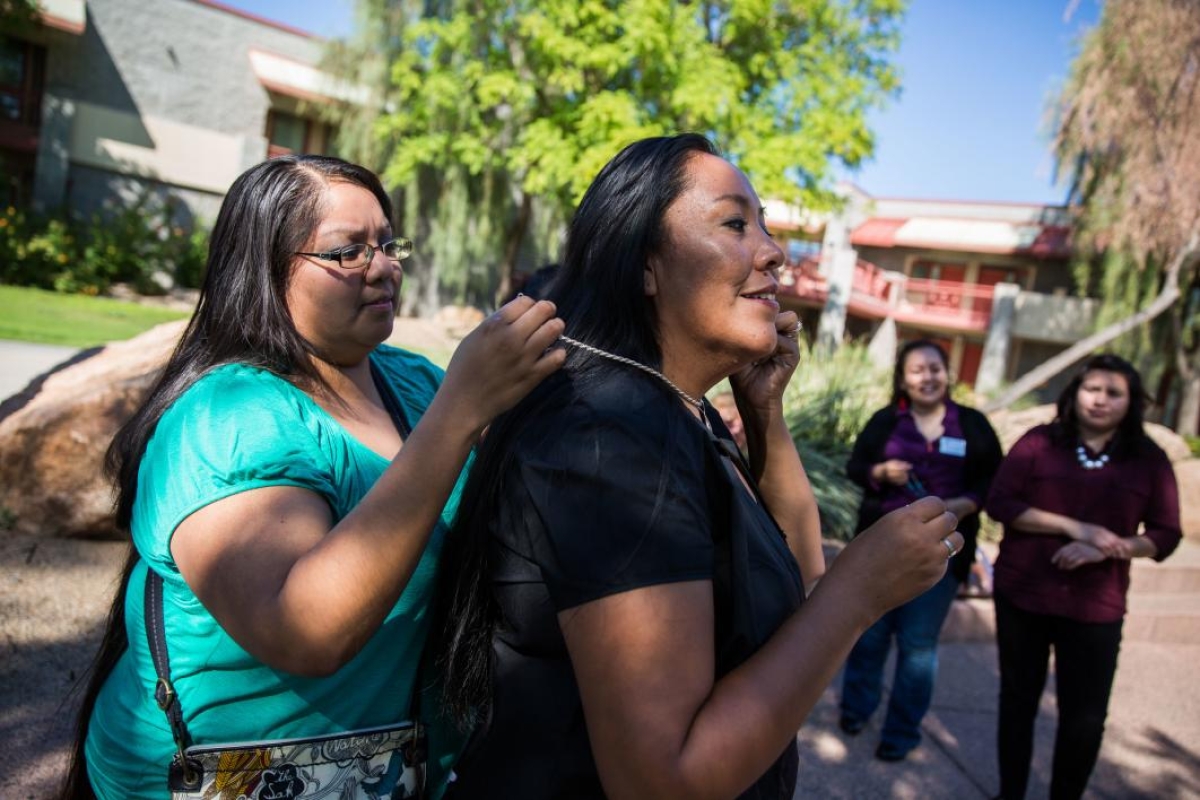A group of Native American women gathered this week to find a path to their dreams.
The women were selected to be part of the first Project DreamCatcher, a new program at the Thunderbird School of Global Management that is designed to launch them as entrepreneurs. They spent the week at Thunderbird’s campus in Glendale learning about business planning, accounting and marketing while making site visits and connecting with experienced mentors who can help guide them to success.
“The ripple effect of empowering women is great,” said Steven Stralser, an emeritus professor of entrepreneurship at Thunderbird, who taught the women. Thunderbird is part of Arizona State University.
“We’re helping them navigate the uncertainties of starting a business in a place where entrepreneurship is not well represented so far.”
Project DreamCatcher was fully funded by the Freeport-McMoRan Foundation and was sponsored by Thunderbird for GoodThunderbird for Good teaches non-traditional students business and management skills to fight poverty and improve living conditions in their communities. Project DreamCatcher was the first Thunderbird for Good program that trained U.S. citizens..
The 17 women are members of four tribes in Arizona — Hualapai, San Carlos Apache, Tohono O'odham and White Mountain Apache. Some of the women have been running businesses for years and others are just starting.
April Tinhorn, a 1996 graduate of ASU and a member of the Hualapai tribe near the Grand Canyon, has owned Tinhorn Consulting for five years.
A savvy businesswoman, the Project DreamCatcher organizers called her about attending the conference and she turned the conversation around.
“Me being me, I took some initiative and I got to interview them and I actually got a marketing contract for Project DreamCatcher,” she said.
Tinhorn was a member of the board of directors for her tribe’s Grand Canyon Resort Corp., which built the Grand Canyon Skywalk attraction.
That process was a revelation for her.
“I got to see our business go from mom and pop to Walmart in a matter of months.
“But I noticed that all of our professional services — lawyers and marketing firms — were not native firms. I knew there are professionals who have experience and qualifications and understand Indian communities and I wanted to be a part of that.”
So she launched her consulting firm, which provides “positive storytelling.” She was able to promote good news when she operated her tribe’s website for a few years.
During the process of helping launch her tribe
But although she’s good at getting clients, Tinhorn knew she needed the financial skills that she could learn at the Project DreamCatcher boot camp.
“What I like about this session is the quality of the instructors. They’ve been able to explain these complex concepts in a real way that we can follow. We’re actually putting in numbers from our own businesses in the examples,” Tinhorn said.
Marketing is a concept that’s challenging for some Native American business owners.
Wynona Larson owns and operates a construction company with her husband, and so far they’ve done only limited promotion.
“With our culture, we’re taught to be humble, and it’s not a good thing to go out and talk about yourself. It’s seen as bragging,” she said. She’s hoping to put together a presentation about her business for her community.
A member of the Tohono O’odham tribe in southern Arizona, Larson said she and her husband hired consultants to help them launch Big Boy Southwest Construction about four years ago.
“But we wanted to take ownership and do these things on our own,” she said.
Larson doesn’t know many native businesswomen and had never heard of a program like Project DreamCatcher before she applied.
“I’m a Marine Corps veteran and I’m not even certified as a veteran-owned business,” she said. “Some of these things I don’t know where the resources are or I haven’t had time.”
One of the most important parts of Project DreamCatcher is the mentorship. Each participant is assigned a mentor and the pairs spent an afternoon going over “elevator pitches” and “action items.”
Stralser said the intent is for the women to not only stay in touch with each other as a sort of entrepreneurial support group, but also with their mentors.
“I have concerns about people outside of our culture but he heard what I said, and I know he’s going to be great,” Larson said of her mentor, John KellenKellen also mentors start-up ventures through Seed Spot and is a graduate of the Thunderbird School of Global Management., president of Sonora International Realty Corp.
Laura LibmanLibman also is a faculty associate at the ASU Lodestar Center for Philanthropy and Nonprofit Innovation and is a graduate of the Thunderbird School of Global Management. jumped at the chance to be a mentor. She is president and CEO of the Tia Foundation, which trains community-health workers in remote areas of Mexico.
“I’ve been a serial entrepreneur,” she said. “A lot of people helped me to get where I am and I wanted to help someone else do the same thing.”
Libman’s mentee was Eileen Pike, a member of the White Mountain Apache tribe who wants to create a start-up to improve the health of her community.
“I was foggy when I came here but after talking to her I’m a lot more foggy because she’s opened my eyes to so many possibilities,” Pike said of Libman.
“This entire training has been like a roadmap. You have this huge dream but you don’t know how to get it.”
Project DreamCatcher has shown her the path.
More Business and entrepreneurship

New rankings show impact of ASU W. P. Carey School of Business
Good rankings for Arizona State University's W. P. Carey School of Business reinforces the school's commitments to access, excellence and innovation.This week, the Financial Times Business Education…

Arizona Business and Health Summit asks attendees to innovate for value
Arizona State University's W. P. Carey School of Business hosted the third annual Arizona Business and Health Summit, sponsored by the Arizona Biomedical Research Centre, on Thursday, Nov. 14, in…

An economic forecast with lots of variables
The prospect of a new presidential administration is prompting some discussions among top economists.Tariffs, immigration, possible deportation, tax cuts and reduced renewable energy credits are top…
